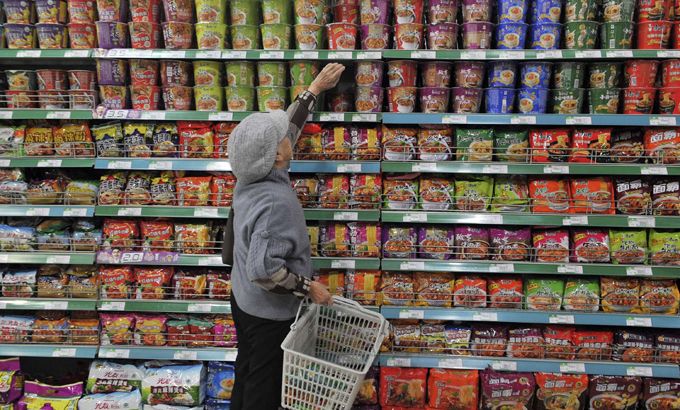
Food for thought
As the US drought drags on, a localised problem is having global implications for food prices.
If prices at your local supermarket have been putting the squeeze on your budget lately, you are not alone. 2012 has seen the third global food price spike in four years.
There are many reasons for this – but the most significant is the weather. Farmers in the American Midwest are facing the worst drought conditions in decades. But even where it is not hot and dry, the effects are being felt as localised issues have global implications.
August and September rains eased the drought for some crops in the American Midwest, but for corn it was too late. Sweltering temperatures and dry weather came as the crop was pollinating, so many corn stalks never produced corn. That set off a chain reaction. Prices – which nearly doubled from 2006 to 2011 – doubled again over the past year.
That is driving up the prices of corn products, and ranchers, who feed corn to their cattle, are selling off or slaughtering their herds early.
The drought did not stop fifth-generation farmer Doug Morehouse from reaping his corn – but it did mean that there was a lot less of it. “In many places we have half a crop,” he says. “I would consider myself blessed to have half a crop when I know personally several who have zero crop – or very close to it. It’s by far the worst I’ve ever experienced. In a situation where you spend a large percentage of your income on food, it is going to be absolutely devastating.”
And lower yields at harvest time mean higher prices for everything from beef to soft drinks to fuel from Indiana to India.
Sympathy for big businesses may often be in short supply, but they also form part of this story. Cargill is the biggest food and agricultural company in the US. It has already taken an 82 per cent hit in profits in the last quarter because of currency fluctuations and the eurozone crisis – and in the next quarter it will start to feel the effects of the drought.
Paul Conway, the vice chairman of Cargill, joins the show to explain how the drought is affecting his business.
Mining: The domain of men?
Mexico’s mining sector used to be pretty exclusively the domain of men. But times are changing and now at Penasquito, the largest open pit mine in the country, women make up 10 per cent of the workforce.
Mexico has always been a mining country and for centuries people believed that women were bad luck – so much so that they thought that if a woman even came close to a mine the minerals would disappear.
But after a huge percentage of the male population migrated north in search of better paying jobs mining companies began recruiting women.
Now it is a growing trend.
Miner Gloria Martinez says: “At first I heard a lot of sexist comments, even from other female co-workers who were not very supportive, but little by little people started to accept me in my job.”
Argentina’s gold rush
In Argentina there is a restriction on buying up US dollars. The government wants to use whatever US currency is in the country to pay for essential imports, thus assisting the greater economy.
Those restrictions mean that the average person is turning to other sources of savings – namely gold.
Silvia Fasanelli sells gold jewellery and says business has been better than ever. “We are selling a lot more gold than before. Things are so expensive in the country that it is cheaper to buy a small piece of gold than a toy, a pair of shoes or clothing.”
Political analyst Rosendo Fraga explains the government’s decision to ban people from saving in US dollars: “The government took an emergency measure to prevent capital flight and to pay off debt. The problem is that this wouldn’t be the first time that a temporary measure becomes permanent. The problem is that economic restrictions force people into the black market.”
Breakout nations
If you missed the rise of the BRICS, CIVETS and NEXT 11 – all terms to describe the next big place to bet on – you may just want to hold on to your money. At least that is what Ruchir Sharma, the author of Breakout Nations, says.
His book challenges a lot of the conventions about ‘the next big thing’ and he joins the show to explain why.
Watch each week at the following times GMT: Friday: 2230; Saturday: 0930; Sunday: 0330; Monday: 1630. Click here for more Counting the Cost. Follow Kamahl Santamaria @KamahlAJE and business editor Abid Ali @abidoliverali |
